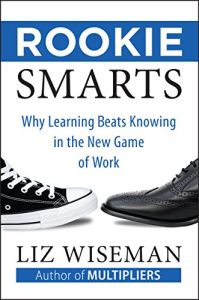Join getAbstract to access the summary!

Join getAbstract to access the summary!
Liz Wiseman
Rookie Smarts
Why Learning Beats Knowing in the New Game of Work
HarperBusiness, 2014
What's inside?
Eager, curious rookies can outperform complacent veterans.
Recommendation
Leadership expert Liz Wiseman says that “beginner’s luck” on a job may be the result of “Rookie Smarts.” She contends that experience can become a hindrance when it blinds people to opportunities, inhibits their ability to react or leads them to ignore new input. As newcomers, rookies naturally seek guidance. They welcome opportunities to learn and bring eager energy to the workplace. Drawing from research and interviews, Wiseman identifies the four different mind-sets of rookie smarts: “Backpacker, Hunter-Gatherer, Firewalker and Pioneer.” These traits help illustrate ways that someone with experience (referred to as a “veteran” throughout the book) can still manifest the best traits of an eager beginner. getAbstract recommends Wiseman’s insights to managers, coaches and leaders seeking to inspire their employees, whether rookies or veterans.
Summary
About the Author
Leadership expert Liz Wiseman wrote the bestseller Multipliers: How the Best Leaders Make Everyone Smarter and The Multiplier Effect: Tapping the Genius Inside our Schools.




















Comment on this summary